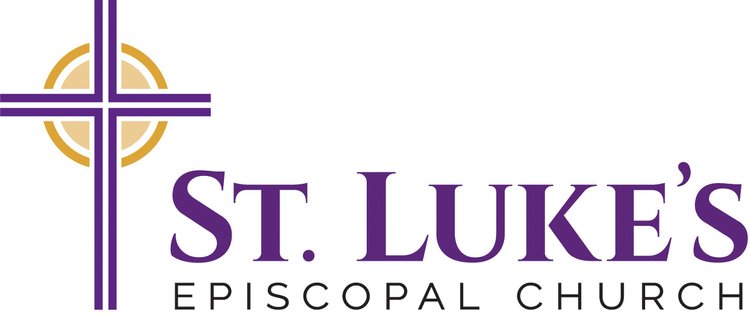Outrage < Redemption
Friends,
On Monday evening I was accidently part of the social media outrage machine. I strongly believe that social media should either be plainly informational or downright silly. When it comes to debating current issues or broadcasting opinions, I simply do not believe that Facebook is conducive to nuanced and compassionate discussion. With that being said, I posted a satirical video on Monday evening for Giving Tuesday pretending to be outraged that St. Luke’s does not sell access to online worship or charge to attend Christmas Eve services as a light-hearted way of encouraging people to financially support our ministries. Little did I know that at the same time the National Cathedral announced they were charging a seven dollar administrative fee to attend their Christmas services.
I’m not sure if you’re plugged into the Episcopal sphere on social media, but people were soooo mad at the Cathedral, and hundreds of comments and posts exploded everywhere expressing their outrage at the idea of charging money to attend any Church service. My silly little video got a little bit of traction in our community, but a couple of people that I knew from a long time ago picked it up and thought it was an intentional dig at the Cathedral. Suddenly, I found myself breaking my rule and unwittingly joined a large chorus of disapproving voices. I couldn’t help but be drawn into the rhetoric of this unfolding controversy out of a sense of curiosity, and if I’m honest, I also enjoyed watching an organization get their just desserts.
First of all, I believe charging seven dollars to attend Christmas services is unchristian, but it was also just a stupid move. We can talk about money changers in the temple all day and get our own self-righteous indignation ramped up, but from a purely practical point of view, they lost a ton of good will and creditability. It did not take terribly long for someone at the Cathedral to make the executive decision to make paying the administrative fee optional, and the Cathedral cited the concerns from the community as being the reason for the change.
On one hand, the outrage machine worked. The Cathedral made a mistake, and a ton of people let them know it in an extremely public way, so they corrected their mistake. I can see other massive Churches making a similar decision considering we live in a world where pews tend to be full on these high holidays, while ministry budgets shrink. Now they will see this is not a proper course of action. Good. Mission acoomplished.
In this particular case, the outrage machine seems to have had a positive effect, but I still feel a bit off with how this controversy unfolded. Humanity seems to be hardwired to express outrage, and social media has made it incredibly easy to vent this outrage to a large audience. Outrage isn’t necessarily bad, and it is certainly biblical. The prophet’s ministries were often based at being outraged at injustice and/or blasphemy, and Jesus showed plenty of outrage when addressing pharisees trying to rhetorically entrap him or when he threw over tables in the temple. What leaves me unsettled with this minor controversy isn’t the outrage, but the lack of openness to redemption.
Scripture is filled with leaders that were faithful and effective because of their past sins and the redemption that they received. Before Paul was Paul, he was Saul and a persecutor of early Christians. His story of encountering Christ is powerful, and years later when we wrote his letters that now populate our New Testament, he was fond of reminding people that he was the worst sinner of the lot (1 Timothy 1:15), or how he is not even worthy of being called an apostle because of his persecution of the Church (1 Corinthians 15:9). He put his past egregious sins on a lamp stand, much like how Christ commends us to put our light on a lampstand so others can see our good works. By constantly reminding people of his sinful past, he is highlighting the redemptive work of Christ, and implies to all of the egregious sinners listening to his letters, that redemption is possible for them as well.
There is a time and place for outrage, but within the Church there should be infinitely more room for redemption and grace. The fact that the Cathedral did not double down on their decision and thoughtfully responded to the outrage directed at them is not a sign of their sinfulness or weakness, but a sign of their faithfulness. There might have been a big dose of self-interest in their decision to make the services free again, but I will err on the side of letting my outrage go, and celebrate the fact that the Church is still a place where we can expect redemption.
Blessings,
Nick
